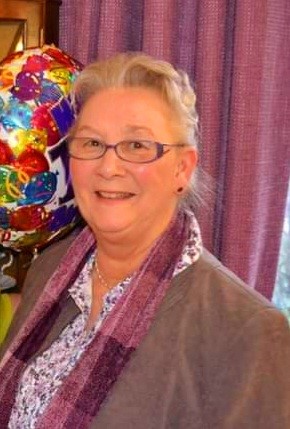England’s NHS Ombudsman has warned that cancer patients could be put at risk because of over-stretched and exhausted health staff working in a system at breaking point and delays in diagnosis and treatment.
The Parliamentary and Health Service Ombudsman (PHSO) revealed that between April 2020 and December 2023, his Office carried out 1,019 investigations related to cancer. Of those 185 were upheld or partly upheld.
Issues with diagnosis and treatment were the most common cancer-related issues investigated by PHSO. These issues included treatment delays, misdiagnosis, failure to identify cancer, the mismanagement of conditions, and pain management.
Complaints about cancer care also included concerns about poor communication, complaint handling, referrals, and end-of-life care.
Most investigations were about lung cancer, followed by breast cancer and colorectal cancer.
In 2023, the Ombudsman published a report about avoidable deaths in which he warned that the biggest threat to patient safety is a system at breaking point and urged Government to ‘get past politics to put patient safety at the very top of the agenda’.
One of the report’s recommendations was for Government to tackle NHS staff capacity issues by producing a fully funded workforce plan with cross-party support. The plan was produced, but there is still a need for full funding.
Rob Behrens, Parliamentary and Health Service Ombudsman, said,
“Everyone deserves safe and effective care. But patient safety will always be at risk in environments that are understaffed and where staff are exhausted and under unsustainable pressure.
“We need to see concerted and sustained action from Government to make sure NHS leaders can prioritise the safety of patients and are accountable for doing so. A key part of this is investing in the workforce, for today and for the long-term, including providing full funding for the long-term workforce plan.”
The Ombudsman recently closed an investigation around the death of Sandra Eastwood whose cancer was not diagnosed for almost a year after scans were not read correctly. The delay meant she missed out on the chance of treatment which has a 95% survival rate.
In 2021, PHSO published a report about recurrent failings in the way X-rays and scans are reported on and followed up across the NHS service.
Mr Behrens said,
“What happened to Mrs Eastwood was unacceptable and her family’s grief will no doubt have been compounded by knowing that mistakes were made in her care.
“Her case also shows, in the most tragic of ways, that while some progress has been made on my recommendations to improve imaging services, it is not enough and more must be done.
“Government must act now to prioritise this issue and protect more patients from harm.”
Mrs Eastwood, a grandmother who lived in York, died in May 2022 of Gastro-Intestinal Stromal Tumour (GIST), a rare type of cancer that develops in the digestive system.
She went to York Hospital in June 2020 with abdominal pain and had two CT scans which showed a mass. Medics said it was a haematoma (blood that collects outside of the blood vessels) caused by taking Warfarin for a heart valve replacement and discharged her.
In May 2021, after her symptoms got worse, Mrs Eastwood returned to the hospital and was diagnosed with GIST. In January 2022, she was given the news that the cancer was terminal. Mrs Eastwood died four months later.
The Ombudsman found that the scans Mrs Eastwood had two years before she died were not interpreted correctly. The failure to follow national guidelines about reporting and acting on unexpected findings was a key issue highlighted in PHSO’s earlier imaging report.
The mass was not indicative of being caused by Warfarin and abnormalities on the second scan meant clinicians should have suspected it could be a lesion. The images should have been reviewed by a multi-disciplinary team and more scans should have been performed within three months.
We found that had Mrs Eastwood been diagnosed when she had the scans, her GIST might not have spread, and she may have been eligible for surgery. By the time she was diagnosed, this was no longer an option. An earlier diagnosis of GIST and treatment where surgery is an option has a 95% survival rate.
Mrs Eastwood was also taken off medication for her rheumatoid arthritis when she began cancer treatment and her pain was not managed effectively through other means during the last four months of her life.
John, 79, who had been married to Sandra for 54 years, said,
“Sandra was wonderful. I worked away a lot when our two children were young and she did absolutely everything for them. She loved baking, making jams and chutneys, and travelling.
“I feel absolutely disgusted with the ‘care’ she received from the hospital. They didn’t investigate the scan results and just put it down to Warfarin straight away. It seemed like the medical teams did not communicate with each other and everything felt very disjointed. They left her in agony for months before she died.
“The whole experience was very distressing, which is why I went to the Ombudsman. I didn’t want this to happen to anybody else. Reading through their investigation report, had the hospital staff read the scans correctly and operated, my wife could have been here for another five to 10 years.”
Read the case summary.

